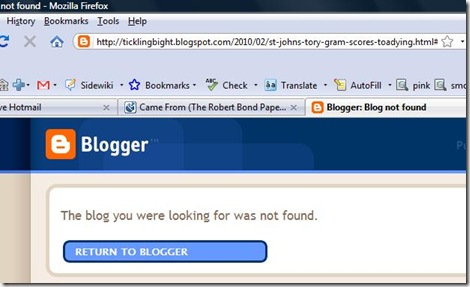Well, not really.
It’s really just a couple of councillors who have opted for hysterics over reason given the decision by Fortis to withdraw its proposed 15 storey high rise development in a heritage zone that had a four story height restriction.
Read that again, just to make sure you are clear.
A proposal that already violated the city building restrictions died before it got to a vote.
And some councillors are a wee bit miffed.
Like At Large councillor Tom Hann and mayor Doc O’Keefe (via CBC):
"Some of us were labelled gutless wonders, and spineless. So in the present atmosphere, why would anyone want to come here and be part of the city," said Hann.
"We slammed the door, your worship. We slammed the door in their face."
A disappointed Mayor Dennis O'Keefe agreed, saying the company had voiced similar concerns to him.
"They felt that they weren't getting a fair shake," said O'Keefe. "What they heard the loudest was the naysaying and the branding of being arrogant."
If Hann would stop with the foolishness for a moment, he’d realise that there are plenty of places in St. John’s, including in the downtown area, where a developer like Fortis can build high rise towers.
So if a developer like Fortis decides to submit a proposal for development that violates the area height restrictions, then it’s their own fault if the thing fails.
There was nothing stopping Fortis from submitting a proposal that fit within the rules and that incorporated a redevelopment of their existing 12 story property. That one would have been grandfathered through anyway.
But there isn’t a single developer who will refuse to come build in the city of St. john’s because - to use his own words - some people think councillors like Hann are “gutless wonders” and “spineless”.
Developers likely don’t care that much about Hann’s feelings.
As for Fortis, they did a pretty slick job early on of lobbying people like Hann and O’Keefe and putting them in the bag long before the residents of St. John’s even heard about the proposal. That’s the sort of old-fashioned crony politics that has left this city in a development mess there is. That’s the one where no one knows what the rules are. They don’t know what the rules are because there are a few councillors who can be persuaded to toss the rules out the window if the mood strikes them.
Ultimately Fortis lost this round because of a pretty effective lobby. Those opposed to the development just put the squeeze on the notoriously fickle councillors.
That’s the way things go in politics.
And if Hann wants to fix things - if he wants to show he has a spine - well he can start by bringing about some changes that open up city hall to greater public scrutiny. That way people wouldn’t be worried that developers can get their way around the rules.
Who knows? If the rules were suddenly clear and fairly and consistently applied there might be more people willing to invest.
-srbp-

 This is not a subject the Fan Clubbers like to talk about but it is real. it also just happens to be one of the major financial problems facing the province that isn’t being addressed by the current administration.
This is not a subject the Fan Clubbers like to talk about but it is real. it also just happens to be one of the major financial problems facing the province that isn’t being addressed by the current administration.![clip_image004_thumb[4] clip_image004_thumb[4]](http://lh5.ggpht.com/_1JCeohwjuLE/S7FKRz6YQZI/AAAAAAAACZs/GmVZFtqGU7E/clip_image004_thumb%5B4%5D_thumb%5B3%5D.jpg?imgmax=800)

 Well, at least his online presence Tickling Bight has gone the way of Brigadoon, back into the mists of the Internet moors.
Well, at least his online presence Tickling Bight has gone the way of Brigadoon, back into the mists of the Internet moors.